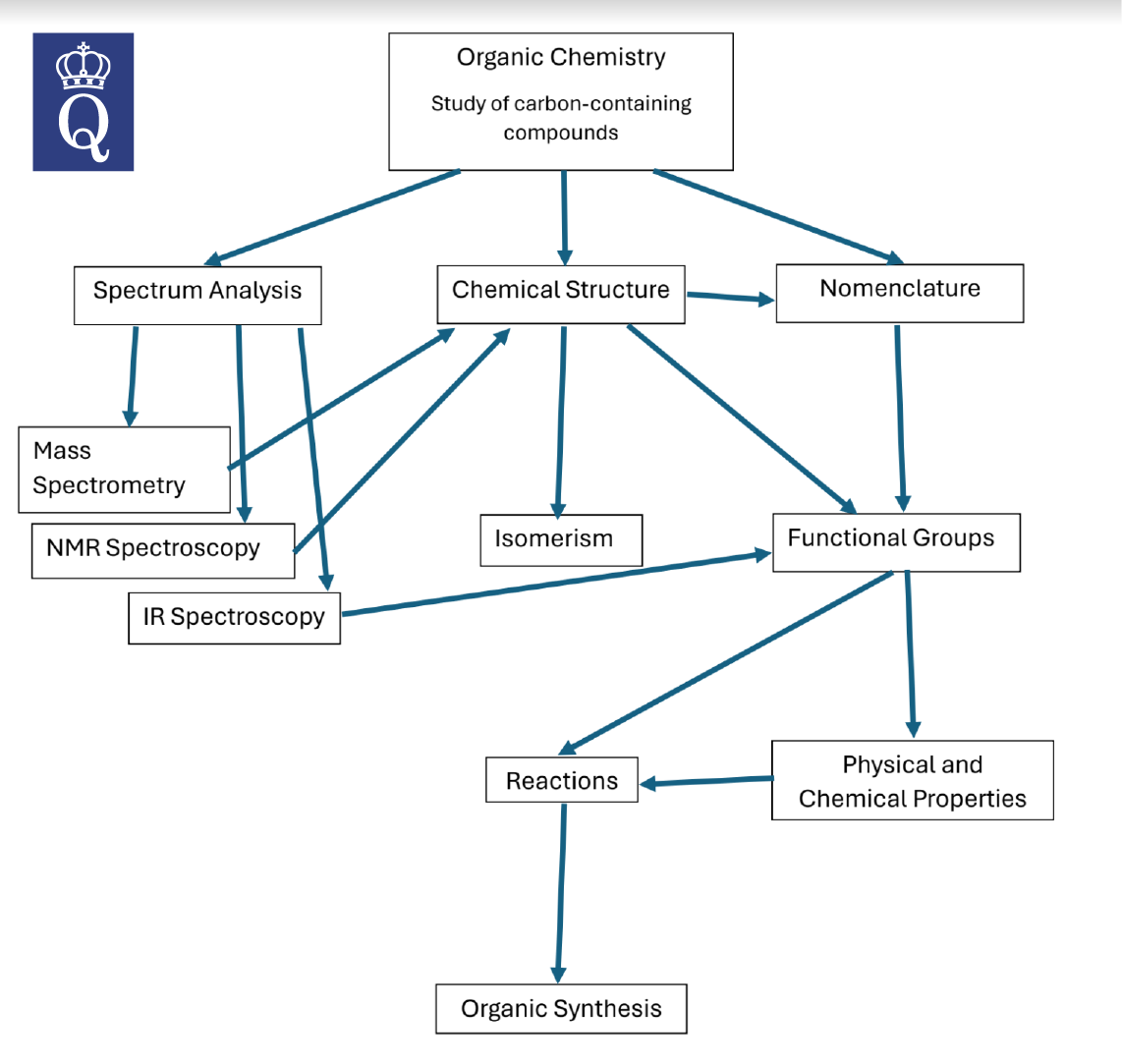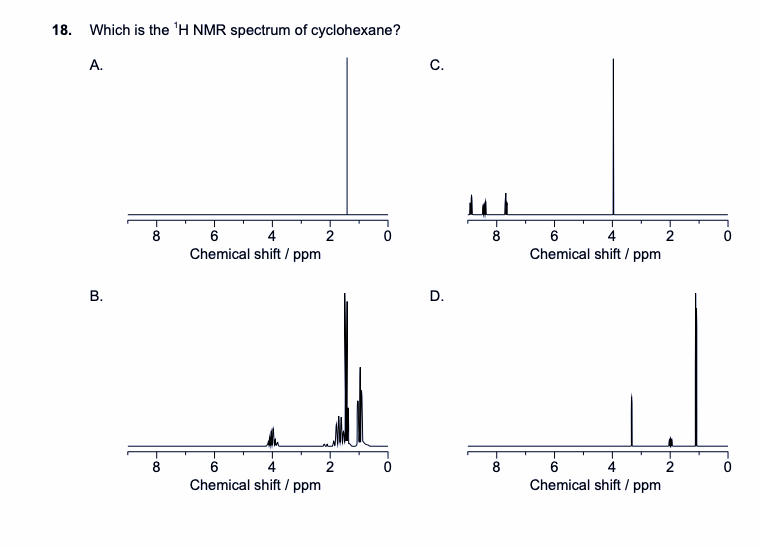
Queen Elizabeth Academy
4.9

Siukei Chung
07/21/2023
Victor and his wonderful teaching staff including Jerome, Cameron and Amjad have been instrumental to my daughter's educational development. We have enrolled with QE for the past 2 years and I can personally attest that this has been the most effective group of educators I have come across. Victor is extremely passionate, professional and his care for his students is very evident. Its been very rewarding for me to see a huge improvement in my daughter's knowledge and confidence in math and english. The QE staff are truly gifted in teaching and they were able to adapt their style in a way that maximized my daughter's learning. My daughter is in grade 12 and QE has exceeded all of my expectations in helping prepare her for University. Thank you very much Victor and team!

Dilshad Lallani
07/21/2023
Queen Elisabeth Academy provides excellent tutoring service and credit courses. We have had 3 daughters access tutoring service for various science and math courses at the grade 11 and 12 levels since 2016. The tutors are extremely knowledgeable and able to engage easily. They are patient, kind and very generous with their time. The tutors reflect Queen Elisabeth Academy’s value of genuinely caring about the academic success of each student based on individual learning needs and style. Our eldest and middle daughters have received generous university entrance and yearly scholarships. Our youngest will be attending university in September 2023 and, similar to her sisters, she has received early acceptance offers with very generous scholarships from various universities. Our eldest will be graduating from law school coming June 2023.
It goes without saying that Victor is excellent at what he does. However, what sets him apart is his caring mindset resulting in going above and beyond providing tutoring service. He regularly offers academic success strategy workshops by bringing in successful students from competitive med or Ivy League business schools. He also regularly shares evidenced based journal articles on strategies for academic success or test/exam taking by experts in the fields of education and neuroscience. The Academy’s advisor is a Harvard Med/PhD student with expertise in Health Science and Neuroscience. Victor also partners with parents to provide the best experience for students. He advises on University selections based on current admission trends and student interests. His flexibility for make up or extra sessions is next to none. His administrative staff is very diligent and works hard to accommodate the needs of students and their family where possible.
I would unequivocally recommend Queen Elisabeth Academy and we are grateful for having access to such a great Academy.

Jamal Shihadeh
07/21/2023
It was a pleasure and a turning points for my children education when they joined Queen Elizabeth's Academy.
What really make this Academy different is the great attention given to students, they analyse carefully the strength and weakness of their student, they work on clear strategy to improve students performance and are very flexible to change strategy when needed. they worked patiently with my son and improved his performance to excellency. It is great how management and especially Mr. Victor follow up with us on my son progress , I received many phone calls and emails with updates, this tight follow up and advices we received resulted in huge difference in my son performance and his awareness to his education. I highly recommend QEA.

The Webster-Cho Family
07/21/2023
Over the years, all of our four children have taken secondary school courses at Queen Elizabeth Academy. Victor is amazing! He and his team of educators and staff have always demonstrated a positive, communicative and supportive learning experience. In our most recent experience with the Advanced Functions and Calculus courses, our daughter’s teacher Cameron was absolutely fabulous! He made math enjoyable by adding a little bit of humor to his teaching and by encouraging the students to ask questions, while also patiently taking the time needed to ensure that everyone in the class understood the material being taught. Cameron assisted our daughter in catching up on the math concepts that had been missed (due to her grade 9/10/11 online / in-person pandemic experiences) and supported her in gaining a very in-depth understanding of Calculus in preparation for her university level math. We really couldn’t have asked for a better teacher than Cameron. Thanks to both Victor and Cameron for such a wonderful educational experience.

Andrew Gallacher
07/21/2023
I credit QEA for my entry into Western Engineering! Tutors/Teachers actually teach and care about ensuring students fully grasp the learning, their on-line group learning format far exceeds that in the public school system, numerous additional resources were available to set me up for success, and the school is very well run and organized. Thank you QEA!

N Pais
07/21/2023
My daughter Megan has had the opportunity to take grade 11 math and grade 12 advanced functions at queen Elizabeth Academy. She is registered for physics 12 in the fall. Due to the pandemic situation we have been very worried that our child is not going to get the foundations in math and science that she needs. Thanks to Victor and his team of highly qualified teachers our concerns have been alleviated. Megan has had the traditional in class model with QEA and has just finished up with an online platform. Both have been great and I am confident that Megan is now prepared for university. I truly believe that the public school system of distance learning cannot do what Victor and his team have done for my daughter. She has been prepared for success as a direct result of professional teaching methods that work.
A quick update to my above review......THANK YOU Victor and team! Megan was accepted to all of her top choice UNI programs with a scholarship and is off to start the next chapter of her life. Your program has given Megan an amazing foundation in both Math and Science and has ensured her future success. Megan is very confident starting her first year at UNI and feels well prepared for her fall courses.

Hanna Y.
07/21/2023
We were looking for a tutor to preview, review, and reinforce concepts for our son heading into university. Thanks to Victor, Amjad, and Zach's guidance, my son is thrilled with his teachers. Shout out to Victor for his exceptional business style and communication to make his clients beyond satisfied! 5 stars

Hanna Yoon
03/15/2023
We were looking for a tutor to preview, review, and reinforce concepts for our son heading into university. Thanks to Victor, Amjad, and Zach's guidance, my son is thrilled with his teachers.

debbie chiang
03/25/2023
Thank you Victor, Amjad and everyone at QE for making the weekly 1.5 hour session such an enjoyable experience for my son. I have already recommended your service to some of my friends and will definitely be booking with you in September when my daughter goes to high school. I hope Amjad will still be around in September.

Deepa Ramanathan
02/21/2023
Our Son has been part of Queen Elzibeth Academy for past couple of years and it really has helped with this academics in Science, Math and English. Victor is a great counsellor and guides with right schools, books and with frequent seminars from his old sucessful students.

Rula Khalil
02/21/2023
Our experience with the Academy tutoring s been very good. I have two kids who took tutoring at QEA, one of them is in medical school now and the other is still G12. Cameron is an amazing tutor!

Sanghamitra Ray
02/20/2023
I will give credit to the QEA teachers for making the learning a very enjoyable experience which is required for any student to become confident and consistently perform well.

Katherine Marchello
02/18/2023
Thank-you Victor for supporting both my children in math. We thank Ishra, Amjad and Efran for their strong efforts.

Alan Keats
02/18/2023
We cannot thank Zach, Victor and the whole team for assembling this amazing support system. We can't wait to watch our daughter soar with the help of Queen Elizabeth Academy.

Anna and Trevor Brown
02/14/2023
With the Peel school board in a bit of a mess this year, we were looking for a credited summer program for my son to fast track his Grade 11 math. We'd heard great things about Victor and the Queen Elizabeth Academy from friends who had kids take fast track classes.

a a
02/13/2023
We enrolled our daughter in the grade 12 Functions course after she was having difficulty learning at her local school. I can’t tell how positive of an experience this has been. She actually understands the content and is getting great marks

Nisreen Elayyan
02/11/2023
My children have been attending QEA for almost 3 years, and I only have great things to say about my experience. The teachers put a lot of thought and work into how they present the material, not only do they provide engaging lessons but they are also very patient with everyone in the class as well as encouraging them to work harder.

Jamie Samson
02/11/2023
We enrolled our son for online tutoring in Grade 11 to provide him some extra support during Covid when classes were all online. We found the tutoring services and support to be very helpful.

danny chung
02/08/2023
2 of our kids have taken courses at QE and will definitely enroll our 3rd. They loved the smaller class sizes and help from their teachers and tutors. Strongly recommend to parents and students!

R Cassaro
01/14/2023
I highly recommend QEA. The class sizes are very small and therefore student's get individual attention from the instructor to address any concerns or difficulties they may be experiencing with the course content.

Patricia Quance
01/05/2023
I can’t say enough about our experience with QE Academy. Based on tutoring support from Cameron, our son earned marks in Advanced Functions and Calculus in the high 90s.

lemon cat
12/15/2022
I have really enjoyed taking Calculus at Queen Elizabeth Academy. The instructor was fantastic and explained the math concepts clearly and was available for help. I was accepted into my top University choice.

Ewa Kopec
12/01/2022
QE Academy is an excellent place to learn and excel. During Covid, quadmesters were very stressful to most of the students. QE Academy kept its structure on a semester basis which allowed students to have enough time to learn the material properly.

Indu Dhir
11/15/2022
Thank you to Victor and his team for making learning fun again and helping my son develop confidence in himself!!!

Team P
11/13/2022
The course materials were so well structured that he was able to learn in an effective manner. Victor took the time to explain different study options to parents. As a final point, QEA hosted several seminars on applying to universities so we knew what to expect. I highly recommend QEA for students who aim high. For parents who want more information, don't hesitate to call the school.

Janet Glass
10/20/2022
With the uncertainty of the full course curriculum being taught in public school during the pandemic, we enrolled our daughter in QE Academy for grade 12 Advanced Functions. The teacher is excellent and the course is being taught in-person with the full course curriculum being covered every week.

Maddy
10/05/2022
My son really exceled in his science class. Having a smaller class room setting really made a difference, he was able to get the support when needed. Victor is great, always available when you have questions.

steve zucker
09/04/2022
My son took 2 course in grade 12 math at Queen Elizabeth Academy, Advanced Functions and Calculus, over the past semester. He found the instruction excellent and he believes he has a strong foundation for University mathematics and science going forward due to the quality of these course and the knowledge he gained.

Dorothy Petsalnikos
08/09/2022
My daughter took Grade 11 Functions during the pandemic. The online instruction was excellent and the teacher took the time to go over concepts. The instruction was not rushed like in her other public school classes.

Sandy Mark
05/23/2022
My daughter has had an extremely positive experience at QE Academy. The private credit math courses were both intensive and well taught.

Jamal Shihadeh
04/25/2022
It was a pleasure and a turning points for my children education when they joined Queen Elizabeth's Academy. What really make this Academy different is the great attention given to students, they analyse carefully the strength and weakness of their student, they work on clear strategy to improve students performance and are very flexible to change strategy when needed.

Marlene Arruda
03/15/2022
Our son has benefited very positively from his experience with Queen Elizabeth Academy in grade 11 functions. We have now enrolled him in grade 12 Advanced functions. The teaching has been of high quality.

Susan Berry
03/11/2022
With the intensity of the quadmester program, we needed extra one-on-one time to augment the virtual classroom experience. I highly recommend Victor and his team to support your kids during this challenging time,

James Arruda
02/01/2022
My son had a great experience with QE Academy. Teachers were great and the small class sizes really helped my son excel in Advance functions and Calculus.

Brainy
12/30/2021
My son totally enjoyed the experience, the learning, small class sizes, and especially the one-to-one time with the instructor to elevate and enhance his understandings in these subjects.

Xuan Nguyen-Vi
12/12/2021
My son found the tutoring with QEA so helpful while doing his grade 12 year virtually. QEA was able to help supplement his lessons, which provided the additional instructions he needed to understand the course materials.

N Pais
11/03/2021
I truly believe that the public school system of distance learning cannot do what Victor and his team have done for my daughter. She has been prepared for success as a direct result of professional teaching methods that work.

Rosanna Marangoni
10/23/2021
We have used Queen Elizabeth Academy for many years, from tutoring to Credit Courses. Victor and his highly skilled and specialized tutors and teachers helped and motivated my sons to achieve their academic goals.

Hyeja Otsuki
10/15/2021
Victor is excellent at communicating with parents and students and he is also very good at listening and acting on everyones feedback. Highly recommend QEA!!

Heidi Morley
10/05/2021
QEA was recommended to us by a friend & we have been extremely happy. One on one math tutoring has built up our daughters confidence & this has ultimately helped increase her marks substantially. Having a tutor who can teach to a students way of learning is invaluable & we feel we have experienced that with both of the tutors that our daughter has worked with.

Nancy Eliou
09/18/2021
My daughter decided to get a jump start to her last year in high school and decided to take the Gr 12 English summer course at Queen Elizabeth Academy. She had a great experience with Victor and her teacher Justin.

Deborah Scott
08/30/2021
My son had a wonderful experience for grade 11 functions. It's remarkable that the lessons were so well organized during Covid-19, with all of the lessons being virtual. The kids were engaged and Victor's teaching staff is top notch. I highly recommend QEA to anyone seeking a quality education experience for their child.

Connie Routhier
06/27/2021
At Queensway academy my son has to sign on daily with his teacher and classmates ( small class size only 8 students) and she actually teaches a class. There is plenty of time for questions and my son gets feedback on his tests.

quan van
06/13/2021
My son took a summer class from Queens Elizabeth Academy to improve his ability to do math. During this month, I can see a huge improvement because his mindset of learning and practicing his math skills are incredible.

Craig V
06/06/2021
The QE Academy Gr. 12 Advanced Functions course and tutoring has been an in depth experience. The small class size, organized tests, assignments and access to assistance has been valuable for learning the content well, in preparation for post secondary.

Shelley Stampatori
06/01/2021
My son did very well in the small group setting. Qualified teachers and tutors who are approachable and have prepared him well for university and understanding of course material.

Irina Arkhipova
04/26/2021
Great place to tune up marks and get ready for university. It worked well for both my children to boost their confidence in English, math and science.

Marija Dokic
04/29/2021
My both kids are taking classes here. Very knowledgeable teachers extremely helpful and we can not express how happy we are. Our both kids love it.

Diana Leaman
04/03/2021
We have attended this school for tutoring services for a few years and they have been excellent. The tutors are extremely knowledgeable, organized and truly helpful.

Jan Richards
03/01/2021
We’ve been very impressed by the class instructors and tutors at the QE academy. They’ve helped our child connect with math courses much more effectively.

Linda Mitchell-D
02/25/2021
Money well spent and calc.will be with QE since public education in math is failing miserably. Big shout to QE and their fantastic teachers!

Andrew Gallacher
02/21/2021
I credit QEA for my entry into Western Engineering! Tutors/Teachers actually teach and care about ensuring students fully grasp the learning, their on-line group learning format far exceeds that in the public school system.

Ayesha Syed
02/18/2021
Besides excellent education, Victor gives life changing inspiration to students that need it most when they are graduating from high school and looking forward to their future.

Renata K
02/15/2021
If you are looking for a place that will get your child's grades up to get into top universities and programs - look no further. The tutors are outstanding - not only do they know their subjects, they also know how to teach it and how to explain the material to their student.

barb underhill
02/11/2021
Very small class sizes, and additional one on one support when needed has really helped my son achieve his best possible results.

Jasmine Duong
02/06/2021
My brother has enjoyed his tutoring immensely, and the tutors were kind and attentive throughout the quick paced overall tutoring period. Would definitely recommend QEA to anyone looking for summer tutoring.

Jerry Tang
02/01/2021
I've tried other tutors before, but few have actually helped improve my grades like Queen Elizabeth has. They were focused on actually helping me improve my grades (from 80s up to 90s), which was how I managed to get accepted into all my uni choices! :) Thank you victor!

Tom Wainas
01/30/2021
My Son has thoroughly enjoyed his class. The small ratio of teacher to students allowed my son to grasp the practical theories at a rapid pace. Highly recommend...

Kathleen Chan
01/28/2021
My daughter has had very positive experience with QEA. Her English tutor is especially knowledgeable and skilled in teaching. Highly recommend QEA!

Angela Kwan
10/29/2020
QEA is an amazing environment to work in; the workplace culture here is inclusive and collegial. I highly recommend tutors to work here!

Janice Lauzon
08/17/2020
We’ve use their tutors in the past with great results. Recently tried their online full credit courses. Really great prep for university and very thorough.

Nicholas Claude
08/06/2020
QEA is a great place to get education and knowledge, their instructors are also good and amazing. The quality of tutors is good.

Trish H
05/29/2020
Small class sizes. Content thoroughly taught. Well worth the investment!

Anum Malik
05/09/2020
Quality service.

Siukei Chung
03/21/2020
My daughter is in grade 12 and QE has exceeded all of my expectations in helping prepare her for University. Thank you very much Victor and team!

Dilshad Lallani
03/12/2020
The tutors are extremely knowledgeable and able to engage easily. They are patient, kind and very generous with their time. The tutors reflect Queen Elisabeth Academy’s value of genuinely caring about the academic success of each student based on individual learning needs and style.

Maddy
01/10/2020
My son recently completed Grade 12 Functions this past summer 2021 and did very well. Guided by his instructor, he worked very hard to earn his mark. Having taken this course at Queen Elizabeth Academy really gave the support and motivation he needed to be successful.

elly kavaliova
12/17/2019
We are taking Grade 11 English with QEA. We loved how much attention is given to students, great feedback on their assignments and clear directions on how to improve students performance.

Karen Stewart
12/14/2019
Victor our thanks to you and your teaching staff for strengthening our daughters foundational skills and building her confidence in the process. Your motivated guidance helped her work for it and realize her goals.

M B
12/02/2019
My daughter took Gr 12 chem this summer and had a fabulous experience. She struggled with chemistry at her regular school, so she switched to QE. The teaching methods and personalized instruction at QE Academy kept her engaged, and helped her learn and achieve a high grade.

Doug Rajala
10/31/2019
My son really benefited from the small class sizes, personalized attention and enthusiasm of the Queen Elizabeth Academy. Not only was his teacher (Anthony Meffe) very engaged, but so was the owner, Victor, who often checked-in on his experience.

Sue Bhatnagar
10/03/2019
Our son is just completing grade 11 English as a reach-ahead summer school credit and he has really benefited from the very small class size. His teacher (Diana) has done an amazing job of keeping him actively engaged during the online classes.

Tom Wainas
9/15/2019
My Son is currently taking Grade 12 English with QEA and has responded really well to the leadership of Victor Lee and his teacher Anthony. The online video face to face time is unprecedented and the one-on-one help they offer has kept him really engaged - highly recommend!

Jan Richards
8/10/2019
We've had an excellent experience with QEA academy for both math tutoring and a secondary school math course. The tutors do a great job engaging the students with the material and the administrators are very responsive.

Linda Mitchell-D
08/08/2019
My daughter has used the tutoring through Queen Elizabeth Academy. The tutors are extremely knowledgeable in their subject. They make student feel at ease and help them arrive at the best solution by helping them reason out the question. They ensure the student has a thorough understanding of the subject at hand and understands how they got to solution in the most efficient manner.

Nolan Grierson
07/20/2019
I know that I could never have achieved the level of success and understanding without the excellent instruction from my teacher. I plan on doing more courses through Victor's school to help me achieve my goal for post secondary.

Nancy McCulloch
06/27/2019
We have been pleased with the level of education and outstanding service. You have motivated our son and given him confidence, striving to achieve great marks. We would highly recommend Queen Elizabeth Academy.

Emily Johnson
My daughter had an exceptional experience at Queen Elizabeth Academy! She enrolled in Grade 11 Physics and received top-notch instruction from her dedicated tutor. The tutor's teaching style was engaging and effective, making complex concepts easy to understand. Thank you, Queen Elizabeth Academy, for providing such a supportive learning environment.

Michael Thompson
Queen Elizabeth Academy has been instrumental in my son's academic success. He attended Grade 10 Math classes and received personalized attention from his tutor. The tutor's expertise and patience helped him improve his understanding and achieve excellent grades. I'm grateful to the entire team at Queen Elizabeth Academy for their commitment to student growth.

Sarah Davis
As a parent, I couldn't be happier with Queen Elizabeth Academy. My daughter took Grade 12 English and had an outstanding experience. The tutor was highly knowledgeable and created a stimulating learning environment. The academy's emphasis on critical thinking and effective communication has truly helped my daughter excel in her studies.

Daniel Wilson
Queen Elizabeth Academy is the best tutoring center we've come across. My son attended Grade 9 Science classes, and the tutors were fantastic. They made the subject interesting and accessible, resulting in significant improvements in my son's understanding and grades. We highly recommend this academy to all parents seeking quality education.

Jessica Adams
I can't express enough gratitude to Queen Elizabeth Academy for their exceptional tutoring services. My daughter enrolled in Grade 11 Chemistry, and her tutor went above and beyond to ensure her success. The tutor's dedication and expertise significantly boosted my daughter's confidence and academic performance. We are incredibly satisfied with the academy's commitment to student growth.

Richard Roberts
Queen Elizabeth Academy has been a game-changer for my son. He took Grade 12 Biology, and his tutor's guidance was invaluable. The tutor's in-depth knowledge and passion for the subject inspired my son to excel. The academy's friendly and supportive atmosphere fostered a love for learning in my son. Thank you, Queen Elizabeth Academy, for nurturing his potential.

Jennifer Martinez
I'm extremely impressed with Queen Elizabeth Academy. My daughter attended Grade 10 French classes, and the tutor's teaching methods were outstanding. The tutor made learning a new language enjoyable and engaging, resulting in my daughter's improved comprehension and fluency. I highly recommend this academy to parents seeking top-quality tutoring.

David Anderson
Queen Elizabeth Academy has been a blessing for my son. He joined Grade 11 History classes and received exemplary instruction from the tutors. They made the subject come alive through interactive lessons and thought-provoking discussions. My son's passion for history has grown immensely, all thanks to the academy's exceptional teaching staff.

Michelle Lewis
My daughter's experience at Queen Elizabeth Academy has been nothing short of remarkable. She enrolled in Grade 9 English and had an amazing tutor who provided personalized attention. The tutor's ability to identify and address my daughter's individual needs ensured her progress and boosted her confidence. We are grateful for the academy's commitment to student success.

Christopher Moore
Queen Elizabeth Academy is a top-tier tutoring center. My son attended Grade 10 Math classes and had an outstanding tutor who made complex concepts easy to understand. The tutor's dedication and effective teaching strategies helped my son improve his grades significantly. I highly recommend this academy for its exceptional educational services.

Laura Mitchell
I can't speak highly enough of Queen Elizabeth Academy. My daughter took Grade 12 Physics, and her tutor was phenomenal. The tutor's extensive knowledge and ability to explain difficult concepts in a simplified manner were remarkable. Thanks to the academy's excellent tutoring, my daughter achieved exceptional results in her exams.

Thomas Evans
Queen Elizabeth Academy has exceeded my expectations. My son attended Grade 11 Math classes, and his tutor provided exceptional support. The tutor's patient approach and ability to break down complex problems helped my son grasp difficult concepts. I'm grateful to the academy for their dedication to student success.

Rachel Thompson
I'm delighted with the results my daughter achieved at Queen Elizabeth Academy. She took Grade 10 English and had an amazing tutor who ignited her love for literature. The tutor's passion and knowledge made the subject come alive. I'm grateful to the academy for fostering my daughter's enthusiasm for learning.

Matthew Wilson
Queen Elizabeth Academy has been instrumental in my son's academic journey. He attended Grade 12 Chemistry classes, and his tutor was exceptional. The tutor's expertise and commitment to student success were evident in my son's improved understanding and grades. I highly recommend this academy for its exceptional tutoring services.

Elizabeth Adams
My daughter's experience at Queen Elizabeth Academy has been phenomenal. She enrolled in Grade 9 Science and had a dedicated tutor who made the subject engaging and accessible. The tutor's ability to explain complex concepts in a simplified manner helped my daughter excel in her exams. I'm grateful to the academy for their outstanding tutoring.

William Roberts
Queen Elizabeth Academy has been a game-changer for my son. He attended Grade 11 Biology classes, and his tutor's guidance was invaluable. The tutor's passion for the subject and personalized approach motivated my son to achieve remarkable results. I'm grateful to the academy for nurturing his academic growth.

Samantha Martinez
I'm incredibly impressed with Queen Elizabeth Academy. My daughter took Grade 10 Chemistry, and her tutor was exceptional. The tutor's extensive knowledge and ability to explain challenging topics in a clear and concise manner greatly contributed to my daughter's success. I highly recommend this academy for its outstanding tutoring services.

Jonathan Anderson
Queen Elizabeth Academy has been a blessing for my son's academic journey. He enrolled in Grade 12 History, and his tutor was outstanding. The tutor's in-depth understanding of the subject and engaging teaching style made learning history enjoyable. I'm grateful to the academy for helping my son develop a strong passion for the subject.

Laura Lewis
My daughter's experience at Queen Elizabeth Academy has been exceptional. She attended Grade 9 French classes, and her tutor's expertise made the learning process enjoyable and effective. The tutor's patience and encouragement greatly improved my daughter's language skills. I highly recommend this academy for its excellent tutoring services.

Daniel Moore
Queen Elizabeth Academy has been a game-changer for my son's academic progress. He took Grade 11 English and had an outstanding tutor. The tutor's ability to make literature come alive through interactive discussions and insightful analysis greatly enhanced my son's understanding and love for the subject.

Emily Johnson
I can't express enough gratitude to Queen Elizabeth Academy for their outstanding tutoring services. My daughter enrolled in Grade 10 Math, and her tutor's guidance was invaluable. The tutor's patient approach and ability to simplify complex problems greatly contributed to my daughter's improved grades. We are incredibly satisfied with the academy's commitment to student success.

Michael Thompson
Queen Elizabeth Academy has been instrumental in my son's academic growth. He attended Grade 12 Physics classes, and his tutor's expertise and dedication were remarkable. The tutor's ability to explain difficult concepts clearly and provide ample practice opportunities helped my son achieve exceptional results. Thank you, Queen Elizabeth Academy, for your exceptional tutoring.

Sarah Davis
As a parent, I'm extremely pleased with Queen Elizabeth Academy. My daughter took Grade 11 Chemistry and had an exceptional tutor. The tutor's extensive knowledge and ability to simplify complex topics greatly contributed to my daughter's success. The academy's commitment to providing a nurturing learning environment is truly commendable.

Daniel Wilson
Queen Elizabeth Academy is by far the best tutoring center we've come across. My son attended Grade 10 Science, and the tutors' dedication and expertise were outstanding. They made the subject interesting and accessible, resulting in significant improvements in my son's understanding and grades. We highly recommend this academy to all parents seeking top-quality education.

Jessica Adams
I'm thrilled with the experience my daughter had at Queen Elizabeth Academy. She enrolled in Grade 12 English, and her tutor's guidance was exceptional. The tutor's expertise and passion for the subject were evident in my daughter's improved writing and critical thinking skills. Thank you, Queen Elizabeth Academy, for your outstanding tutoring.

Richard Roberts
Queen Elizabeth Academy has been a game-changer for my son's academic success. He took Grade 11 Biology, and his tutor's support and expertise were invaluable. The tutor's ability to explain complex concepts in a simplified manner greatly contributed to my son's understanding and achievement. I highly recommend this academy for its exceptional educational services.

Jennifer Martinez
I'm incredibly impressed with Queen Elizabeth Academy. My daughter attended Grade 10 French, and her tutor's teaching methods were outstanding. The tutor's enthusiasm and ability to make learning a new language enjoyable greatly improved my daughter's comprehension and fluency. I highly recommend this academy for its exceptional tutoring.

David Anderson
Queen Elizabeth Academy has been instrumental in my son's academic journey. He enrolled in Grade 12 History and had an outstanding tutor. The tutor's deep understanding of the subject and ability to engage students through interactive lessons greatly contributed to my son's success. I'm grateful to the academy for fostering his passion for history.

Michelle Lewis
My daughter's experience at Queen Elizabeth Academy has been exceptional. She took Grade 9 English, and her tutor provided personalized attention and support. The tutor's ability to identify and address my daughter's individual needs ensured her progress and boosted her confidence. We are grateful to the academy for their commitment to student success.

Christopher Moore
Queen Elizabeth Academy is a top-notch tutoring center. My son attended Grade 10 Math, and his tutor's dedication and expertise were outstanding. The tutor's ability to explain complex concepts in a simplified manner greatly contributed to my son's improved understanding and grades. I highly recommend this academy for its exceptional educational services.

Laura Mitchell
I can't thank Queen Elizabeth Academy enough for the exceptional tutoring my daughter received. She took Grade 12 Physics, and her tutor's guidance was invaluable. The tutor's extensive knowledge and ability to explain difficult concepts in a simplified manner greatly contributed to my daughter's success.

Thomas Evans
Queen Elizabeth Academy has surpassed my expectations. My son attended Grade 11 Math, and his tutor provided exceptional support. The tutor's patient approach and ability to break down complex problems helped my son grasp difficult concepts. I'm grateful to the academy for their dedication to student success.

Rachel Thompson
I'm delighted with the results my daughter achieved at Queen Elizabeth Academy. She enrolled in Grade 10 English, and her tutor was phenomenal. The tutor's passion for literature and ability to create a stimulating learning environment greatly contributed to my daughter's success. Thank you, Queen Elizabeth Academy, for fostering her love for learning.

Matthew Wilson
Queen Elizabeth Academy has been instrumental in my son's academic growth. He attended Grade 12 Chemistry, and his tutor's expertise and commitment to student success were remarkable. The tutor's ability to explain complex concepts and provide ample practice opportunities significantly improved my son's understanding and grades. Thank you, Queen Elizabeth Academy, for your exceptional tutoring.

Elizabeth Adams
My daughter's experience at Queen Elizabeth Academy has been exceptional. She attended Grade 9 Science, and her tutor's guidance and support were invaluable. The tutor's ability to explain complex topics in a simplified manner greatly contributed to my daughter's understanding and achievement. We highly recommend this academy for its outstanding tutoring services.

William Roberts
Queen Elizabeth Academy has been a game-changer for my son's academic progress. He took Grade 11 Biology, and his tutor's expertise and dedication were outstanding. The tutor's passion for the subject and personalized approach motivated my son to achieve remarkable results. I'm grateful to the academy for nurturing his potential.

Samantha Martinez
I'm incredibly impressed with Queen Elizabeth Academy. My daughter attended Grade 10 Chemistry, and her tutor was exceptional. The tutor's extensive knowledge and ability to explain challenging topics in a clear and concise manner greatly contributed to my daughter's success. I highly recommend this academy for its outstanding tutoring services.

Jonathan Anderson
Queen Elizabeth Academy has been a blessing for my son's academic journey. He enrolled in Grade 12 History, and his tutor was outstanding. The tutor's in-depth understanding of the subject and engaging teaching style made learning history enjoyable. I'm grateful to the academy for their commitment to student growth.

Laura Lewis
My daughter's experience at Queen Elizabeth Academy has been exceptional. She attended Grade 9 French, and her tutor's expertise made the learning process enjoyable and effective. The tutor's patience and encouragement greatly improved my daughter's language skills. I highly recommend this academy for its excellent tutoring services.

Daniel Moore
Queen Elizabeth Academy has been a game-changer for my son's academic journey. He took Grade 11 English and had an outstanding tutor. The tutor's ability to make literature come alive through interactive discussions and insightful analysis greatly enhanced my son's understanding and love for the subject.

Emily Johnson
I can't express enough gratitude to Queen Elizabeth Academy for their outstanding tutoring services. My daughter enrolled in Grade 10 Math, and her tutor's guidance was invaluable. The tutor's patient approach and ability to simplify complex problems greatly contributed to my daughter's improved grades. We are incredibly satisfied with the academy's commitment to student success.

Michael Thompson
Queen Elizabeth Academy has been instrumental in my son's academic growth. He attended Grade 12 Physics, and his tutor's expertise and dedication were remarkable. The tutor's ability to explain difficult concepts clearly and provide ample practice opportunities helped my son achieve exceptional results. Thank you, Queen Elizabeth Academy, for your exceptional tutoring.

Sarah Davis
As a parent, I'm extremely pleased with Queen Elizabeth Academy. My daughter took Grade 11 Chemistry and had an exceptional tutor. The tutor's extensive knowledge and ability to simplify complex topics greatly contributed to my daughter's success. The academy's commitment to providing a nurturing learning environment is truly commendable.

Daniel Wilson
Queen Elizabeth Academy is by far the best tutoring center we've come across. My son attended Grade 10 Science, and the tutors' dedication and expertise were outstanding. They made the subject interesting and accessible, resulting in significant improvements in my son's understanding and grades. We highly recommend this academy to all parents seeking quality education.

Jessica Adams
I'm thrilled with the experience my daughter had at Queen Elizabeth Academy. She enrolled in Grade 12 English, and her tutor's guidance was exceptional. The tutor's expertise and passion for the subject were evident in my daughter's improved writing and critical thinking skills. Thank you, Queen Elizabeth Academy, for your outstanding tutoring.

Richard Roberts
Queen Elizabeth Academy has been a game-changer for my son's academic success. He took Grade 11 Biology, and his tutor's support and expertise were invaluable. The tutor's ability to explain complex concepts in a simplified manner greatly contributed to my son's understanding and achievement. I highly recommend this academy for its exceptional educational services.

Jennifer Martinez
I'm incredibly impressed with Queen Elizabeth Academy. My daughter attended Grade 10 French, and her tutor's teaching methods were outstanding. The tutor's enthusiasm and ability to make learning a new language enjoyable greatly improved my daughter's comprehension and fluency. I highly recommend this academy for its exceptional tutoring.

David Anderson
Queen Elizabeth Academy has been instrumental in my son's academic journey. He enrolled in Grade 12 History and had an outstanding tutor. The tutor's deep understanding of the subject and ability to engage students through interactive lessons greatly contributed to my son's success. I'm grateful to the academy for fostering his passion for history.

Michelle Lewis
My daughter's experience at Queen Elizabeth Academy has been exceptional. She took Grade 9 English, and her tutor provided personalized attention and support. The tutor's ability to identify and address my daughter's individual needs ensured her progress and boosted her confidence. We are grateful to the academy for their commitment to student success.

Christopher Moore
Queen Elizabeth Academy is a top-notch tutoring center. My son attended Grade 10 Math, and his tutor's dedication and expertise were outstanding. The tutor's ability to explain complex concepts in a simplified manner greatly contributed to my son's improved understanding and grades. I highly recommend this academy for its exceptional educational services.

Laura Mitchell
I'm extremely impressed with Queen Elizabeth Academy. My daughter took Grade 12 Physics, and her tutor was phenomenal. The tutor's extensive knowledge and ability to explain difficult concepts in a simplified manner were remarkable. Thanks to the academy's excellent tutoring, my daughter achieved exceptional results in her exams.

Thomas Evans
Queen Elizabeth Academy has surpassed my expectations. My son attended Grade 11 Math, and his tutor provided exceptional support. The tutor's patient approach and ability to break down complex problems helped my son grasp difficult concepts. I'm grateful to the academy for their dedication to student success.

Rachel Thompson
I'm delighted with the results my daughter achieved at Queen Elizabeth Academy. She enrolled in Grade 10 English, and her tutor was phenomenal. The tutor's passion for literature and ability to create a stimulating learning environment greatly contributed to my daughter's success. Thank you, Queen Elizabeth Academy, for fostering her love for learning.

Matthew Wilson
Queen Elizabeth Academy has been instrumental in my son's academic growth. He attended Grade 12 Chemistry, and his tutor's expertise and commitment to student success were remarkable. The tutor's ability to explain complex concepts and provide ample practice opportunities significantly improved my son's understanding and grades. Thank you, Queen Elizabeth Academy, for your exceptional tutoring.

Elizabeth Adams
My daughter's experience at Queen Elizabeth Academy has been exceptional. She attended Grade 9 Science, and her tutor's guidance and support were invaluable. The tutor's ability to explain complex topics in a simplified manner greatly contributed to my daughter's understanding and achievement. We highly recommend this academy for its outstanding tutoring services.

William Roberts
Queen Elizabeth Academy has been a game-changer for my son's academic progress. He took Grade 11 Biology, and his tutor's expertise and dedication were outstanding. The tutor's passion for the subject and personalized approach motivated my son to achieve remarkable results. I'm grateful to the academy for nurturing his potential.

Samantha Martinez
I'm incredibly impressed with Queen Elizabeth Academy. My daughter attended Grade 10 Chemistry, and her tutor was exceptional. The tutor's extensive knowledge and ability to explain challenging topics in a clear and concise manner greatly contributed to my daughter's success. I highly recommend this academy for its outstanding tutoring services.

Jonathan Anderson
Queen Elizabeth Academy has been a blessing for my son's academic journey. He enrolled in Grade 12 History, and his tutor was outstanding. The tutor's in-depth understanding of the subject and engaging teaching style made learning history enjoyable. I'm grateful to the academy for their commitment to student growth.

Laura Lewis
My daughter's experience at Queen Elizabeth Academy has been exceptional. She attended Grade 9 French, and her tutor's expertise made the learning process enjoyable and effective. The tutor's patience and encouragement greatly improved my daughter's language skills. I highly recommend this academy for its excellent tutoring services.

Daniel Moore
Queen Elizabeth Academy has been a game-changer for my son's academic journey. He took Grade 11 English and had an outstanding tutor. The tutor's ability to make literature come alive through interactive discussions and insightful analysis greatly enhanced my son's understanding and love for the subject.

Emily Johnson
I can't express enough gratitude to Queen Elizabeth Academy for their outstanding tutoring services. My daughter enrolled in Grade 10 Math, and her tutor's guidance was invaluable. The tutor's patient approach and ability to simplify complex problems greatly contributed to my daughter's improved grades. We are incredibly satisfied with the academy's commitment to student success.

Michael Thompson
Queen Elizabeth Academy has been instrumental in my son's academic growth. He attended Grade 12 Physics, and his tutor's expertise and dedication were remarkable. The tutor's ability to explain difficult concepts clearly and provide ample practice opportunities helped my son achieve exceptional results. Thank you, Queen Elizabeth Academy, for your exceptional tutoring.

Sarah Davis
As a parent, I'm extremely pleased with Queen Elizabeth Academy. My daughter took Grade 11 Chemistry and had an exceptional tutor. The tutor's extensive knowledge and ability to simplify complex topics greatly contributed to my daughter's success. The academy's commitment to providing a nurturing learning environment is truly commendable.

Daniel Wilson
Queen Elizabeth Academy is by far the best tutoring center we've come across. My son attended Grade 10 Science, and the tutors' dedication and expertise were outstanding. They made the subject interesting and accessible, resulting in significant improvements in my son's understanding and grades. We highly recommend this academy to all parents seeking quality education.

Jessica Adams
I'm thrilled with the experience my daughter had at Queen Elizabeth Academy. She enrolled in Grade 12 English, and her tutor's guidance was exceptional. The tutor's expertise and passion for the subject were evident in my daughter's improved writing and critical thinking skills. Thank you, Queen Elizabeth Academy, for your outstanding tutoring.

Richard Roberts
Queen Elizabeth Academy has been a game-changer for my son's academic success. He took Grade 11 Biology, and his tutor's support and expertise were invaluable. The tutor's ability to explain complex concepts in a simplified manner greatly contributed to my son's understanding and achievement. I highly recommend this academy for its exceptional educational services.

Jennifer Martinez
I'm incredibly impressed with Queen Elizabeth Academy. My daughter attended Grade 10 French, and her tutor's teaching methods were outstanding. The tutor's enthusiasm and ability to make learning a new language enjoyable greatly improved my daughter's comprehension and fluency. I highly recommend this academy for its exceptional tutoring.

David Anderson
Queen Elizabeth Academy has been instrumental in my son's academic journey. He enrolled in Grade 12 History and had an outstanding tutor. The tutor's deep understanding of the subject and ability to engage students through interactive lessons greatly contributed to my son's success. I'm grateful to the academy for fostering his passion for history.

Michelle Lewis
My daughter's experience at Queen Elizabeth Academy has been exceptional. She took Grade 9 English, and her tutor provided personalized attention and support. The tutor's ability to identify and address my daughter's individual needs ensured her progress and boosted her confidence. We are grateful to the academy for their commitment to student success.

Christopher Moore
Queen Elizabeth Academy is a top-notch tutoring center. My son attended Grade 10 Math, and his tutor's dedication and expertise were outstanding. The tutor's ability to explain complex concepts in a simplified manner greatly contributed to my son's improved understanding and grades. I highly recommend this academy for its exceptional educational services.

Patrick Pearson
QE Academy provided an excellent learning environment for my son and helped him understand the concepts of his grade 12 math course.

Nolan Grierson
My experience with QE academy has been amazing. I am going into my final week of reach ahead grade 12 physics in summer school. I know that I could never have achieved the level of success and understanding without the excellent instruction from my teacher. I plan on doing more courses through Victor's school to help me achieve my goal for post secondary.

Trang Reinhardt
My son has been taking Physics grade 12 at QEA with László, class size is small and László is very good and knowledgeable, my son’s confidence is much improved and actually enjoy taking the classes. I really recommend QEA.

James Arruda
I highly recommend Queen Elizabeth to any high school student looking to further develop there education. Small class sizes allow for the students to get a better understanding of the curriculum. The teachers are extremely knowledgeable and helpful.

THE PURPLE HOUSE 1
This place is amazing I’m in yr8 and I’m amazed at how good this school is great teachers pupils and everything and I really hope however joins has I great time in this academy. Lots of love Yassen Ali






































